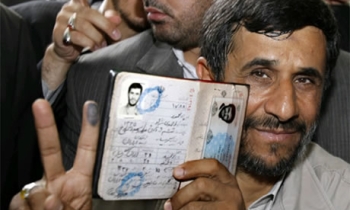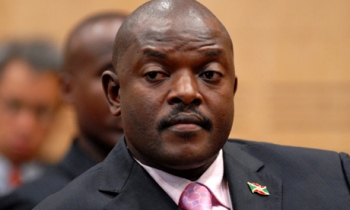Tunisia's control over its citizens' access to Internet content places it at odds with the goals of the World Summit on the Information Society. The OpenNet Initiative on Wednesday released the findings of its investigation into Internet control in Tunisia � "Internet Filtering in Tunisia in 2005" � which documents the degree to which the Tunisian state attempts to control the national information environment, including the filtering of websites, blogs, email, anonymiser services, and online discussion forums.

The ONI research, which draws on open sources and a detailed year-long technical investigation, describes Tunisia's aggressive targeting and blocking of online content that goes beyond pornography and the protection of cultural norms to include political opposition websites, human rights groups, and sites that provide access to privacy-enhancing technologies (including ones that might be used to circumvent Web filtering).
ONI research has found that Tunisia's government Internet agency, ATI, uses SmartFilter � filtering software produced by Secure Computing, a US-based company � as basis of its filtering regime. Since all of Tunisia's ISPs operate through ATI, the system is difficult to circumvent. Access to unfiltered sites is only possible through unregistered Internet services, the report said.
"Tunisia's system blends the power and comprehensiveness of Western filtering software, a network designed to enable censorship, and pressure on journalists and other authors to control online material. These practices run counter to the goals espoused by the World Summit on the Information Society and highlight the challenges to freedom of expression from states determined to limit it," said Derek Bambauer,one of the authors of the report.
The OpenNet Initiative tested 1,923 sites likely to be sensitive from within Tunisia's network. Of these, 187 sites were found to be filtered. All 12 Tunisian Internet Service Providers ISPs work through ATI which filters at the network backbone level. ATI uses SmartFilter which can block pre-defined categories of online material, and also allows for selective blocking of individual sites.
Ronald Deibert, Professor and Director of the Citizen Lab, University of Toronto, also one of the co-athors, said, "Unfortunately, there is today a growing contradiction between the lofty goals concerning the "right to communicate" trumpeted by policymakers, and the increasingly widespread practices of censorship and surveillance that constrain citizens worldwide. In what has become a familiar pattern, once again our research finds a US-based company, Secure Computing, providing services to a repressive regime."
Filtering appears to be conducted extra-legally, and there appears to be no public oversight over the categories of filtered content, the report said. When users attempt to access blocked pages, they receive a misleading "404" error message, which implies that the attempt to access that page failed because of problems with the destination website. ATI appears to falsify the information provided to users who try to reach filtered sites.

"The Tunisian government is grappling with the dichotomy of integrating into a global information culture while trying to protect conservative cultural norms. As is too often the case, the goal of protecting these norms gives way to a temptation to total control the national information environment and evolves in a creeping and all encompassing form of censorship. This tendency is reinforced by the global war on terror, which has given ample ammunition for less- than-representative governments to silence critics in cyberspace � a tendency which has been further reinforced by the willingness of software vendors who see this aspects of "security" as a lucrative market," said Rafal Rohozinski, Director, Advanced Network Research Group, Cambridge Security Programme.
Tunisia's public policy on filtering is opaque at best. The Tunisian government has expressed commitment to an open Internet, while employing a range of measures to limit the range of content that can be accessed. The Law on the Press, most recently amended in 2001, makes defamation of a public official a criminal offense. Extralegal measures are also reportedly used, including economic controls such as directing subsidies and advertising to friendly outlets, and informal pressures such as repressive measures against critics, to ensure that media stay within prescribed boundaries.
Sites blocked in Tunisia include those of the Tunisian League for the Defense of Human Rights (LTDH) (http://www.ltdh.org/), the unauthorised Congrés Pour la Republique (CPR) political party (http://www.cprtunisie.com/), and the French language page for Reporters sans Frontieres (http://www.rsf.fr/). In addition, Tunisia has censored additional sites during the first days of WSIS, including the Citizen's Summit page (http://www.citizens-summit.org/) and a site calling on Tunisia's president to respect freedom of expression (http://www.yezzi.org/?seuil=all#apropos_de_la_manifeng).
Most of Tunisia's estimated 771,000 users gain access from Internet cafés called Publinets. Publinet owners are required to monitor customer access; they are expected to report on activity within their shops, and have the ability to access anything saved to disk by their customers. They also have the right to demand an individual's national identity card, thus linking online activities and saved documents with the user's identity.
The ONI report said Tunisia's regime of Internet control is focused and effective. Tunisia's filtering practices are neither grounded in that country's law nor open to public oversight. Its filtering policies appear to be in contradiction to its official position on preserving the openness of the Internet, and the government appears to wish to obscure its role in filtering behind misleading error messages. While Tunisia's efforts at controlling the Internet cannot be put in the same category as Iran and China in terms of extent or sophistication, its current technical and policy trajectory suggest an expansion of these practices in the future.
ONI is a collaborative partnership between the University of Toronto, Harvard University, and Cambridge University. Authors of ONI's report: Ronald Deibert, Director of the Citizen Lab, University of Toronto; Rafal Rohozinski, Director of the Advanced Network Research Group, Cambridge Security Programme (Cambridge University); Jonathan Zittrain, Faculty Co-Director of the Berkman Center; John Palfrey, Executive Director of the Berkman Center for Internet & Society; Nart Villeneuve, Director of Technical Research at the Citizen Lab; and Derek Bambauer, Berkman Center Fellow. The work of principal investigators Jonathan L. Zittrain and John G. Palfrey, Jr. on this research report was made possible by a grant from the John D. and Catherine T. MacArthur Foundation's Research and Writing Grants Program of the Program on Global Security and Sustainability.









